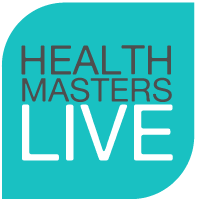Justin has spent decades exploring the diverse field of herbal medicine, both from a scientific and traditional perspective. In his early formative years he had the privilege of living in outback Jabiru in the Northern Territory for 12 months and started to develop an interest in herbal medicine from observing Australia's indigenous Aboriginals and their deep rooted knowledge of the land. It was something that stayed with him for a long time, and at 18, he started studying a Bachelor of Science (Forestry) at the Australian National University, but soon realised this was not the career he was after.
This started a journey that took him to the United States, with many years spent wandering mountain trails, camping in alpine meadows, trekking in deserts, speaking with Elders, quietly observing nature and finally culminating in time spent with Native American Indians which cemented his desire to learn more about the therapeutic applications of plants and traditional systems of medicine.
He journeyed back to Australia to commence his 'formal' studies in 1997 with the University of New England (BHSc Naturopathy) and then completed the Master of Herbal Medicines degree with the University of Sydney's Faculty of Pharmacy in 2004. Since those early years, Justin has been practicing at various clinics in NSW and Queensland and has been a sessional lecturer at both Endeavour College of Natural Health and the Australasian College of Natural Therapies. Over the last decade he has been an active member of numerous college committees and advisory groups, won two educational awards for teaching excellence and was awarded practitioner of the year in the inaugural Nature and Health awards in 2015.
He has served on the Board of Directors for the Naturopaths & Herbalists Association of Australia (NHAA) as both an Executive Director and Examiner and served for 3 years on the Board Member Advisory Committee for the NHAA since its inception in April, 2014. In 2015, he was appointed to the Scientific Advisory Board of United in Compassion (UIC) which supports the use of Medicinal Cannabis in Australia and acts as a hub to support, disseminate and promote safe, equitable and compassionate access to medicinal Cannabis at every stage from cultivation through to finished product.
In January 2017, he was appointed as the Head Scientist for the Scientific Advisory Board for UIC. This aligned well with his study and research into the botany, ethnopharmacology, cultivation, phytochemistry and therapeutic applications of the Cannabis plant which has been undertaken both in Australia and overseas since 1994. Justin was also a member of the Scientific Advisory Board for BioCeuticals, one of Australia's leading practitioner only nutritional and therapeutic supplement companies (Resigned April 2019). In August 2020, Justin was appointed as a board member to the Australian Medicinal Cannabis Association and has also been recruited to the Advisory Group for the newly formed Psychae Institute in Melbourne (July 2021).
Working in education since 2003, Justin has taught a wide variety of subjects over the years including medical sciences such as anatomy, physiology, clinical examination, integrated pharmacology, clinical pathology and biochemistry whilst also delivering modality specific subjects such as botany, Materia Medica, manufacturing, herbal therapeutics, clinical prescription and his beloved phytochemistry / pharmacognosy. The majority of this time has been as a sessional lecturer, but he has also held the position of senior lecturer within the Naturopathic department of Endeavour College between 2009 and 2010, overseeing the development and implementation of botany, herbal manufacturing and pharmacognosy subjects.
When time allows, he also enjoys academic writing and has several peer-reviewed publications in evidence-based textbooks and journals to his name. He has also peer-reviewed manuscripts for the Australian Journal of Herbal and Naturopathic Medicine, Advances in Integrative Medicine, and the Journal of Alternative & Complementary Medicine. Justin was invited to the editorial board of the Australian Journal of Herbal and Naturopathic Medicine in October, 2020.
Justin is currently a Research Fellow at NICM Health Research Institute, an international leader in integrative medicine research based at Western Sydney University where he also heads up the Australian Medicinal Cannabis Research and Education Collaboration. He is a Fellow of the Naturopaths and Herbalists Association of Australia and maintains full membership with both the National Herbalists Association of Australia and the Australian Traditional Medicine Society.
